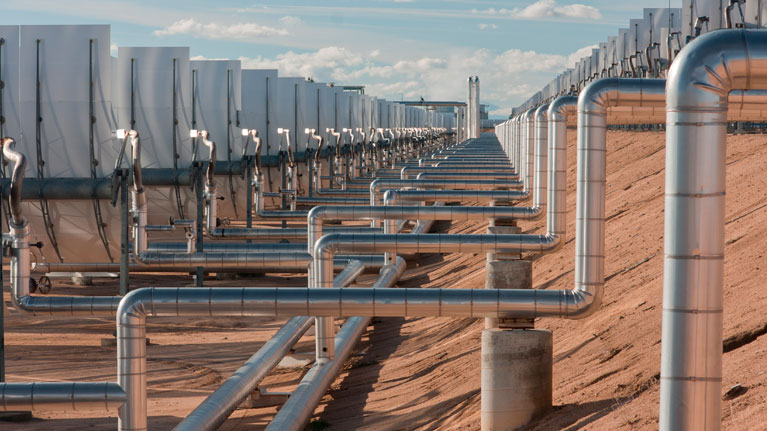Optimising water consumption at solar thermal electric plants
IK4-TEKNIKER is involved in a European project whose aim to achieve a reduction of 70% to 90% in terms of water resources used at solar thermal electricity plants.

Concentrated solar power, also known as CSP, uses mirrors or lenses to concentrate large amounts of sunlight on small surfaces. A most salient feature of this system is that, compared to other power generation technologies, it produces a much lower environmental impact.
As occurs with other types of thermal power stations (gas, coal, nuclear, etc.), CSPs consume large amounts of water (2000-3000 m3/GWh) to produce steam and provide cycle cooling. This particular expense is mainly associated with the thermodynamic cycle itself; cooling (82-94%) and bleeding (4-8%), cleansing (2-10%) and, in the case of solar thermal electric plants, a small additional amount has to be added to clean the solar field (2-10%).
The WASCOP project (“Water Saving for Concentrated Solar Power”), that forms part of the European project Horizon 2020 and in which IK4-TEKNIKER is involved, aims to develop and validate new flexible technologies to reduce water consumption between 70% and 90% at solar thermal electric power plants.
To achieve this goal, more efficient and sustainable cooling processes shall be implemented with the introduction of hybrid (dry/humid) cooling methods.
In addition, new cleansing technologies such as ultrasounds shall be applied to reduce water consumption and clean more efficiently. With the help of powder barriers or new functional coatings, it will be possible to reduce the amount of dirt covering plant components such as reflectors and absorbers to improve plant performance by increasing the amount of power reflected that is to be absorbed at a later stage.
During the project, IK4-TEKNIKER will be working on three main lines of research, all focused on optimising cleansing operations:
- Developing anti-soiling coatings (dirt repellents) for solar reflectors based on sol-gel, a highly versatile chemical deposition and synthesis technique that is used to obtain ceramic and vitreous materials.
- Developing low-cost sensors to produce real-time data on the level of soiling and cleansing requirements in each section of the field.
- Developing a device to perform ultrasound cleansing of solar reflectors.
The WASCOP project, that forms part of the European programme Horizon 2020, has received nearly 6 million euros in funding and is backed by a consortium of universities, SMEs, industries and a number of technology centres.
